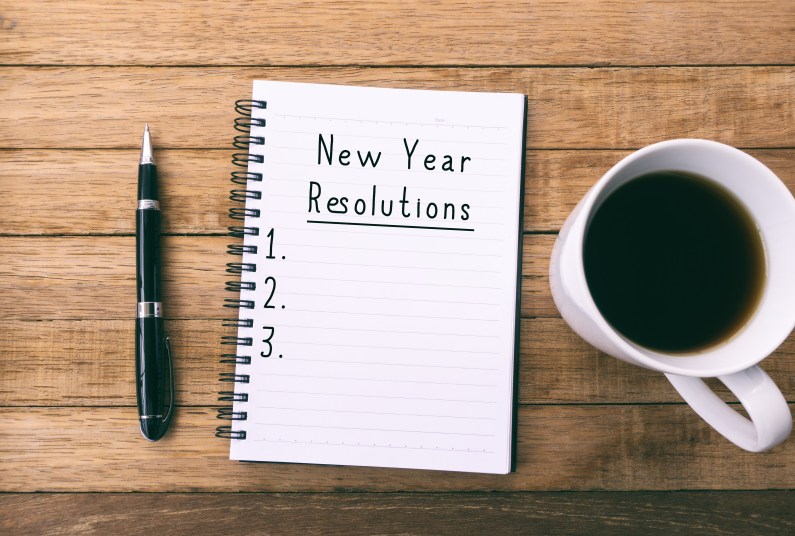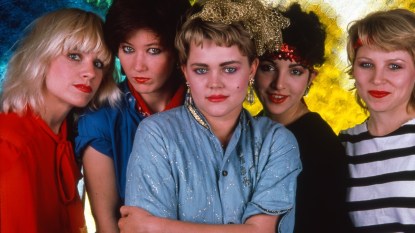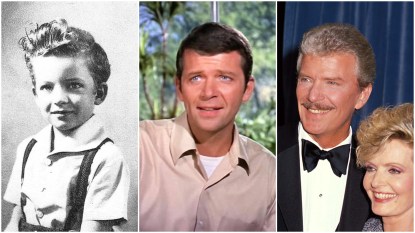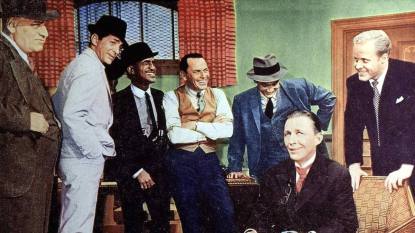Three Expert Organizers Don’t Think New Years Resolutions are a Good Idea — Here’s Why

For many of us, January 1 is a time to reflect on the year gone by, and to think about what we want to change over the next 365 days. There’s something so tantalising about a fresh diary and a whole new year stretching out before us, and the possibility that somehow, in some way, this year will finally be the year we’ll learn French or stop drinking during the week or absolutely, definitely bring our lunch to work every single day.
But studies show that up to 80 percent of us have lost our resolution mojo by February. Just 31 days into the year, and we’ve already forgotten our goals. With that in mind, we asked three professional organizers how they tackle the new year. And, surprise surprise, not one of them believes in setting New Year’s resolutions.
Professional organizer Georgie Rees of Clutterfly says she doesn’t set New Year’s resolutions, and here’s why. “It’s too easy to get carried away by the hype of the New Year and all it brings,” she says. “There’s a sense that, by simply making a resolution, it will just happen.” That’s not how goal-setting — or goal-achieving — really works.
“New Year’s resolutions are a nice idea,” says Rees. “But honestly, they rarely work. I’d rather enjoy my holidays and then set goals throughout the year, when I know I’ll have the focus and time to work at them.” It’s a sentiment Linda Eagleton of Creative Surrounds agrees with. “If I’m going to change something about my life,” she says, “I want to be serious about it and focus on it properly. The start of the year, when we’re enjoying the holidays and relaxing, isn’t really the time to do that.”
One major stumbling block with goals is that people tend to pitch theirs too broadly. “People say they want to ‘get fit’ or ‘get organized’ or ‘lose weight’,” says Eagleton. “But these aren’t specific enough. You need that big-picture idea, but then break it down into smaller parts, with a time frame for each achievement on your list.”
If your goal is to get organized, for example, Eagleton suggests visualizing what you actually mean by this. “Do you mean you want to be more organized at home, or at work? Is it about paperwork and clutter, or about being punctual and meeting deadlines? Once you’ve decided what ‘being organized’ is, hone in on this one area.”
“Only tackle one resolution at a time so you can give it the focus it deserves,” says Rees. Yes, it would be lovely to improve your public speaking, run a half-marathon, and finally sort out your linen closet, but having a scattered approach to goals will result in, well, a scattered result. “Think about what you really want to change,” she explains, “and be realistic about what you can achieve, and the time frame you need.”
“New Year’s resolutions aren’t for me,” says Chelsea Smith of The Organizing Platform. “I don’t see the need to wait for the start of a year to set a goal.” Instead of waiting for January 1 to come around, Smith sets mini-goals throughout the year that help her work towards a major goal.
Smith has a vision board above her desk with images of her goals so she can always see them. “Seeing my vision board is a gentle way to remind myself of what I’m working towards every day,” she says. “It’s a powerful motivator, to constantly be reminded of what you want.”
This article was originally written by Lauren Sams. For more, check out our sister site, Homes to Love.
More From FIRST
Important Advice to Remind Yourself of When You’re Having an Off Day
How a ‘Decluttering November’ Can Transform Your Whole House Before the Holidays
How to Stop Hoarding Nostalgic Items and Keep What Really Matters, According to an Organizing Expert













